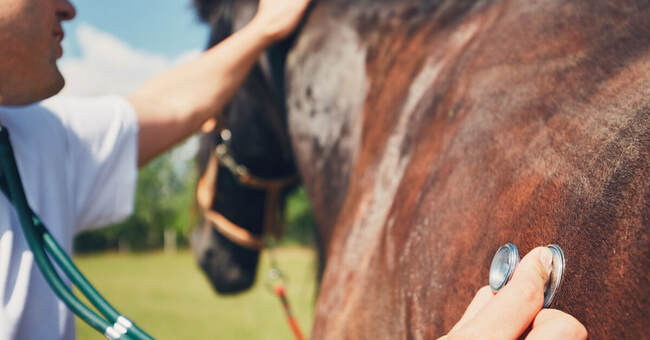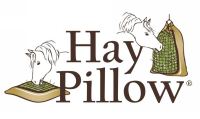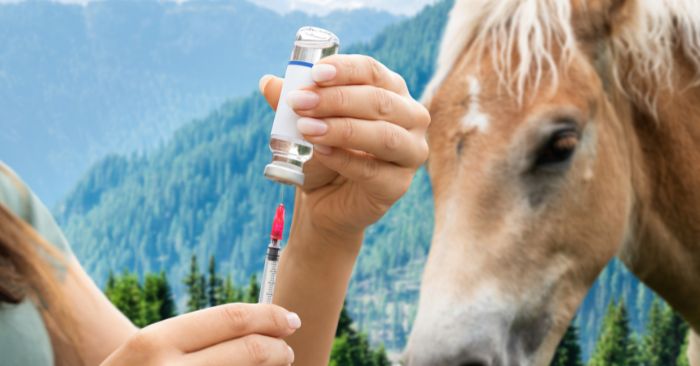Considerations If Giving Vaccines, Sedatives or Dewormers Concurrently
Read on to learn about critical information to keep on hand and what to consider if a combination of tasks/treatments are scheduled in the same visit from your vet - or administered by yourself.

What prompted me to write this article?
- It’s been on my to do list for a long time.
- My neighbor recently experienced the adverse effects first hand. She had scheduled her veterinarian for annual routine dental exams/floats. The day before the appointment she dewormed with Ivermectin. During the visit, the horses received sedatives combined with tranquilizers for dental work - and administered West Nile vaccines. They felt puny for a week and their appetite decreased dramatically.
What was the cause? There was no way to know. Because of combining and back-to-back administration, the process of elimination was no longer an option!
Records To Keep & Why
Following are three types of records to document and keep readily available. I keep both a hard copy and digital record. (Store on iCloud or DropBox to access from your phone). You will never regret the minimal amount of time invested in doing so.
1. "Normal" Vital Sign for Each Horse
Why is this important? So you have a solid baseline to gauge any cause for concern.What is normal for each individual? Only you can determine that - which is why temperature, pulse and respiration (TPR) are published in “normal” ranges. To get an “average” normal for each horse, record resting vital signs over several days at different times of the day. Be sure to use the same thermometer as they can vary in accuracy. TPR should be taken while your horse is relaxed/resting.
Normal Resting Vital Sign Ranges
Adult Horse:
- Temperature: 99-101°F
- Pulse: 28-44 beats per minute
- Respiration: 10-24 breaths per minute
- Mucous membranes (gums): Moist, healthy pink color
- Capillary refill: Two seconds or less
Newborn Foals up to 2 days of age:
- Temperature: 99.5-102.1°F
- Pulse: 80-100 beats per minute
- Respiration: 20-40 breaths per minute
- Mucous membranes (gums): Moist, healthy pink color
- Capillary refill time: Two seconds or less
2. Sedative Type (often Combined with a Tranquilizer) & Dose Administered
Why? To establish a safe and effective baseline for your horse and attending vet. Every individual will vary in their sensitivity to certain drugs.
I know I’m not alone when I say I was petrified my horse would fall over when administered a sedative for dental work. I often stood by to observe long after the vet left to ensure they were safe while the drugs wore off. Some challenges my horses experienced before I chose to keep better records and request alternative sedatives and doses included: profuse sweating, labored breathing, extreme difficulty standing/walking.
Like any drug, sedatives and tranquilizers have the potential to cause adverse reactions or exaggerated effects depending on the type and dose. In addition, vets need to administer an appropriate dose to accomplish what needs to be done without getting injured (and understandably so)! My vet keeps an extra dose in his shirt pocket so he can administer more than the established baseline if he thinks it may take longer than normal.
Sedative reversal agents are drugs that can also cause adverse reactions. My experience is if you determine the optimum baseline/doses, reversal agents are not necessary. That's one less drug to add to the mix!
3. Administered Vaccines with Manufacturers & Dates Given
Why? If there was an adverse reaction, don’t use the same brand/type vaccine again! Vaccine manufacturers may use a combination of antigens, adjuvants and stabilizers exclusive to their brand. A different brand may not cause an adverse reaction.
Tip: Do your own research on vaccines and brands that have the highest incidence of adverse reactions.
- If your horse has never had a type of vaccine, discuss the brand your vet uses prior to your appointment to ensure they have the preferred vaccine brand proven to have the lowest incidence of adverse reactions.
- If your horse has had the vaccine before, ensure you vet plans to use the brand that was given previously with no adverse reactions.
I remember when West Nile Virus vaccines were introduced, there was a manufacturer that had an extremely high incidence of adverse reactions but seemed to be the most commonly used. Do your research and know thy vaccine!
Adverse reactions can occur with any vaccine. Vaccines can be comprised of an antigen, adjuvant (if inactivated) and a stabilizer. An individual may have a reaction to any one of the components.
If your horse has an adverse reaction, don’t use the brand again and report it to your veterinarian and the manufacturer immediately.
Avoid administration of multiple vaccines. Doing so increases the risk of adverse reactions, may compromise effectiveness and eliminates the ability to single out which vaccine caused the reaction.
Thoughts on Potentially Overwhelming the Immune System
Erring on the side of caution, I never combine multiple vaccines, sedation or dewormers - nor do I administer successively within a short period of time.
Why? Combining or administering successively compromises your horse's overall well being. It also introduces a wide array of challenges to the immune system, which weakens the ability to respond effectively.
The immune system is like an army. If half of the soldiers are battling adverse effects or appropriately reacting to a vaccine, the capacity to respond to additional threats is reduced.
Vaccines:
If you combine and your horse has an adverse reaction, you may not be able to attribute it to the vaccine - or determine if you should use that brand again. In addition, the vaccine's effectiveness may be compromised if the horse's immune system is not able to respond appropriately.
Sedation/Tranquilizers:
Side effects can include but are not limited to: salivation, sweating, diarrhea, elevated blood glucose, decreased intestinal motility, labored breathing and reduced heart rate. These cause additional battles for the immune system to fight.
Deworming:
Together, the chemical - combined with parasite die-off (releasing parasitic endotoxins) - can account for quite a toxic load. Often times individuals with a large parasite burden are already compromised and may be subject to impaction colic due to the sheer volume of parasites to excrete. Read our article: Can Equine Fecal Egg Counts Reveal Accurate Parasite Burdens?, to learn about common equine parasites not revealed by fecal tests - including where they reside and/or reproduce, their life cycle, and why a fecal flotation test is not a be-all end-all detector of potential parasite burdens.
In Closing
We, as guardians, know our beloved herd better than anyone. It is our responsibility to be their advocate!
- Know and track your horse's optimal baselines, doses, and any adverse reactions.
- Thoughtfully schedule routine treatments and procedures over an optimum time period to minimize the impact on their immune system and overall well being.
Being proactive is far more productive than being reactive. Your horse will thank you.

Helpful How To Resources
- Sand Colic - The Surprising (Simple) Cure & Prevention
- Are You a Prisoner of Feeding? Here's How I Broke Free
- Ulcers? Learn How Forage Buffers Acid
- Equine Gastric Acid - 12 Facts You May Not Know
- Causes of Equine Ulcers – 7 Stress Factors & Solutions
- 6 Great Reasons to Feed Your Horse from Ground Level
- 9 Benefits of Slow Feeding Horses
- 7 Slow Feed Dos and Dont's for Horses
- 7 Easy Ways to Help Prevent Colic
- Never Exercise Horses on an Empty Stomach...Ever
- Why You Shouldn't Transport Horses On An Empty Stomach
- Keeping Horses Warm Naturally – Internally and Externally
- Why Most Horses Prefer to Eat Outside
References:
- Horse Staff; The Horse Magazine. (2011, August 22). Normal Horse Temperature, Heart Rate, Breathing Rate. Retrieved from https://thehorse.com/119724/normal-horse-temperature-heart-rate-breathing-rate/
- American Association of Equine Practitioners.Vaccination Guidelines > Adverse Reactions. Retrieved from https://aaep.org/guidelines/vaccination-guidelines/adverse-reactions
- Gershwin. LJ., Netherwood. KA., Norris. M.S, Behrens. NE., Shao. MX.(2012 December 14). Equine IgE responses to non-viral vaccine components. Retrieved from: https://www.ncbi.nlm.nih.gov/pubmed/23088888
- Pitman. T. (2011 November). Using Sedatives – For Or Against?. Retrieved from https://horse-canada.com/magazine_articles/using-sedatives-for-or-against/



